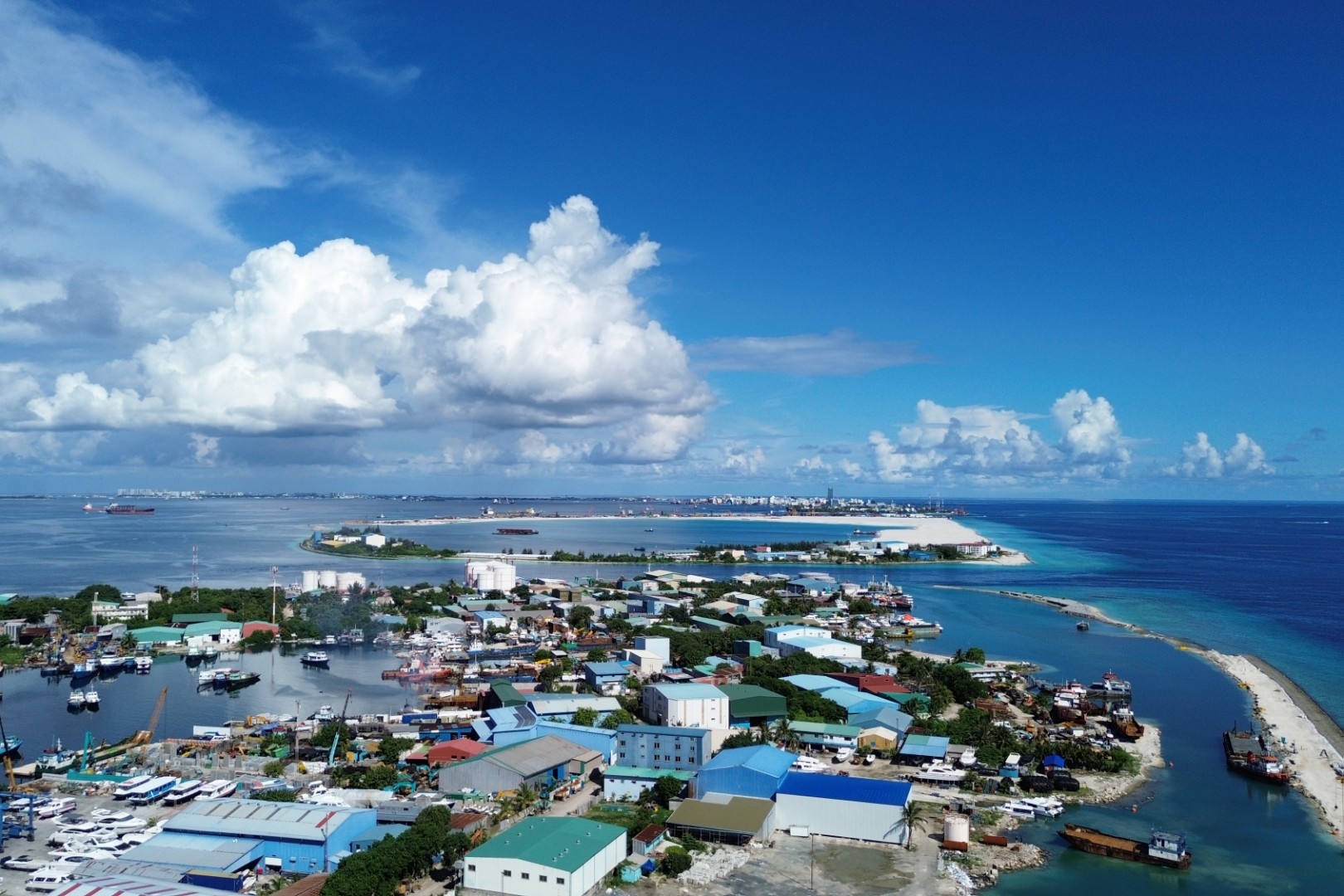
Skeptics mislead on Maldives climate resilience, sea level rise
- This article is more than one year old.
- Published on June 28, 2024 at 16:48
- 4 min read
- By Manon JACOB, AFP USA
"Anyone remember this? In 1988, experts predicted sea-level rise would wipe out the Maldives within 30-years' time. Fast forward 36-years, the islands have grown, and have not been swallowed up by rising seas. Catastrophists are batting zero with their predictions of doom," says a June 10, 2024 post on X.
The claim also spread in French and Spanish.
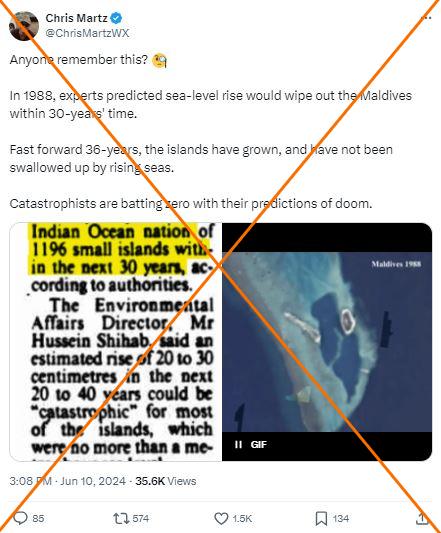
Similar claims have circulated for years about the South Asian nation made of about 1,200 islands.
The social media posts were fueled by research showing most of the Maldives islands have remained unchanged or added land (archived here and here), But experts said the findings showing accretion offsetting the loss of land do not disprove the impact of rising sea levels, which have been documented in the Maldives since at least 1987.
The post shows an authentic AFP article from 1988 (archived here) in which Maldivian authorities are reported to have said that an "estimated rise of 20 to 30 centimeters in the next 20 to 40 years could be 'catastrophic' for most of the islands."
But the coverage does not specify if the statement by the Maldivian government was based on climate projections (archived here), noted Jayantha Obeysekera (archived here), the director of the Sea Level Solutions Center at Florida International University.
"What the authorities said apparently was, IF sea level rises by 20 to 30 cm, that would be catastrophic," Obeysekera said on June 21, 2024.
Reports have documented Maldivian coastal erosion for years (archived here) and the rise of sea levels caused by humans (archived here) has current and projected impacts on the nation.
This was confirmed by geoscientist Or Bialik of Ben-Gurion University of the Negev, Beer Sheva, Israel,(archived here) on June 26.
"The fact that sea level is rising, with erosion (and human activity) taking away sand from the coastal area does result in the loss of land area in some islands" of the Maldives, he said.
Virginie Duvat, a professor of coastal geography at La Rochelle University in France and lead author of a United Nations Intergovernmental Panel on Climate Change (IPCC) chapter on small islands (archived here), said the risks remain despite the limited changes over the past decades.
"To date, the islands that have eroded and reduced in area are very small islets -- this finding is in line with what has happened in other atoll settings over the past decades," she told AFP on June 27.
She noted however that the islands "are increasingly exposed to flooding" due to human-induced climate change.
In response to these impacts, the Maldivian government, with the help of local researchers and scientists, has been working on contingency and resilience plans (archived here) to mitigate the effects of climate change, including the construction of artificial islands such as Hulhumalé, northeast of the densely populated capital Malé (archived here and here).
Some land expansion is thus man-made and not organic, contrary to what the post implies, while local shoreline water levels also fluctuate (archived here) based on factors such as waves and tides.
"This is particularly true in the Maldives where island dynamic is driven by" monsoon shifts (archived here), Duvat explained.
Rising seas
The Maldives are one of the most vulnerable places for sea level rise, Obeysekera said. Roughly 80 percent of Maldivian territory is less than a meter (three feet) above sea level (archived here).
Per data gathered by the National Oceanic and Atmospheric Administration, the relative sea level trend in the Maldives has been increasing by 3.39 millimeters on average every year between 1987 and 2018 (archived here).
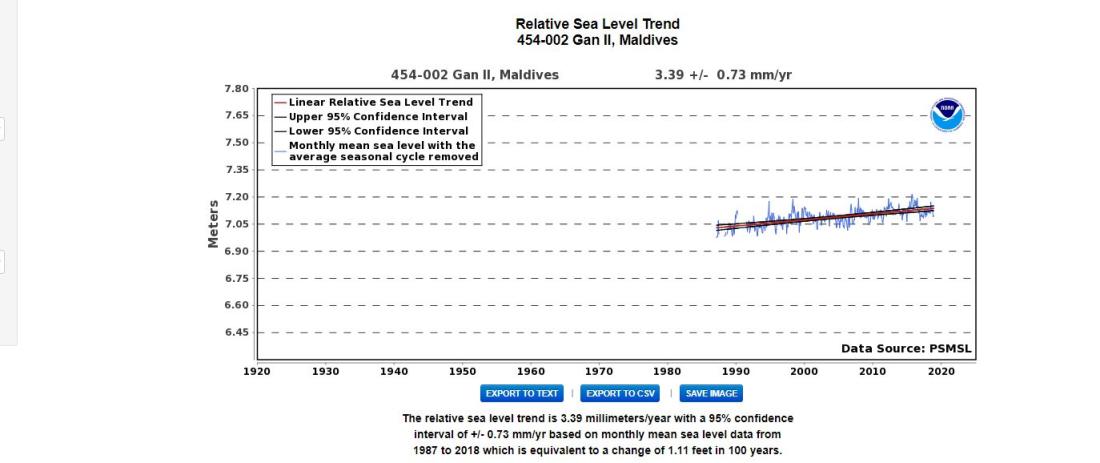
"Certainly, the island nation is worried about losing land," Obeysekera said.
The IPCC said in a 2021 report that the average rate of sea-level rise increased from 1.3 millimeters per year between 1901-1971 to 1.9 mm between 1971-2006 (archived here).
Between 2006 and 2018, the rate shot up to 3.7 mm per year.
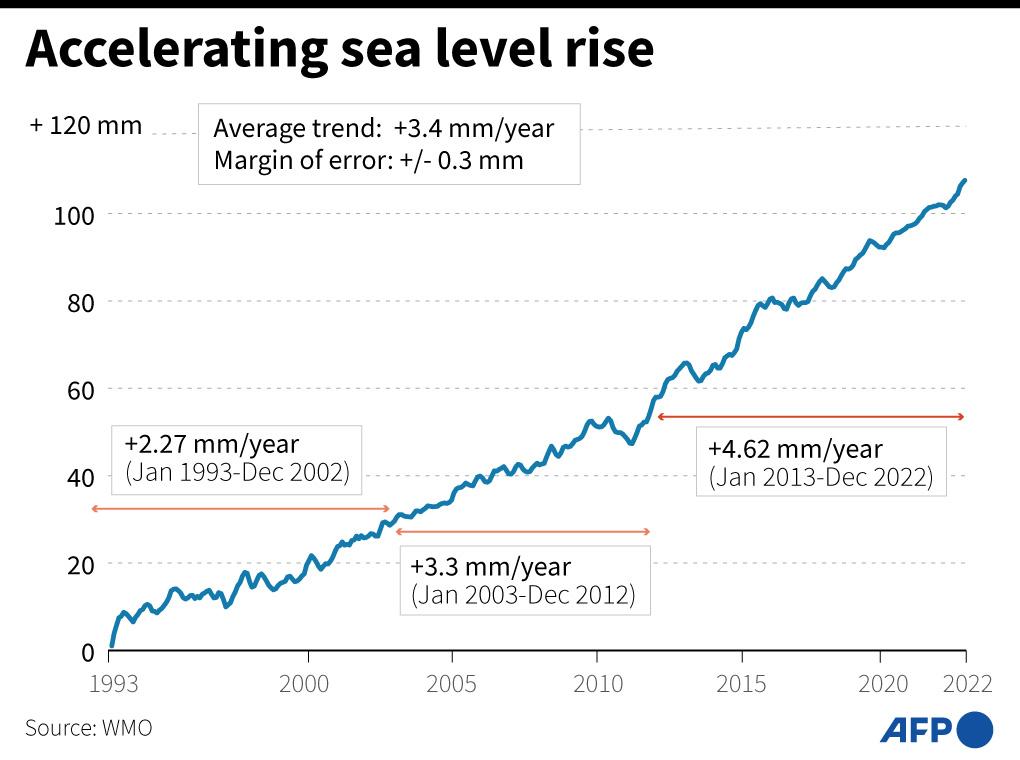
"Global mean sea level has risen faster since 1900 than over any preceding century in at least the last 3,000 years," the report says, adding that human-caused emissions are "extremely likely" the culprit.
Past the 'tipping point'
Scientific studies have shown most atoll islands are at risk of becoming uninhabitable by mid-century as flooding impacts infrastructure and freshwater availability (archived here and here).
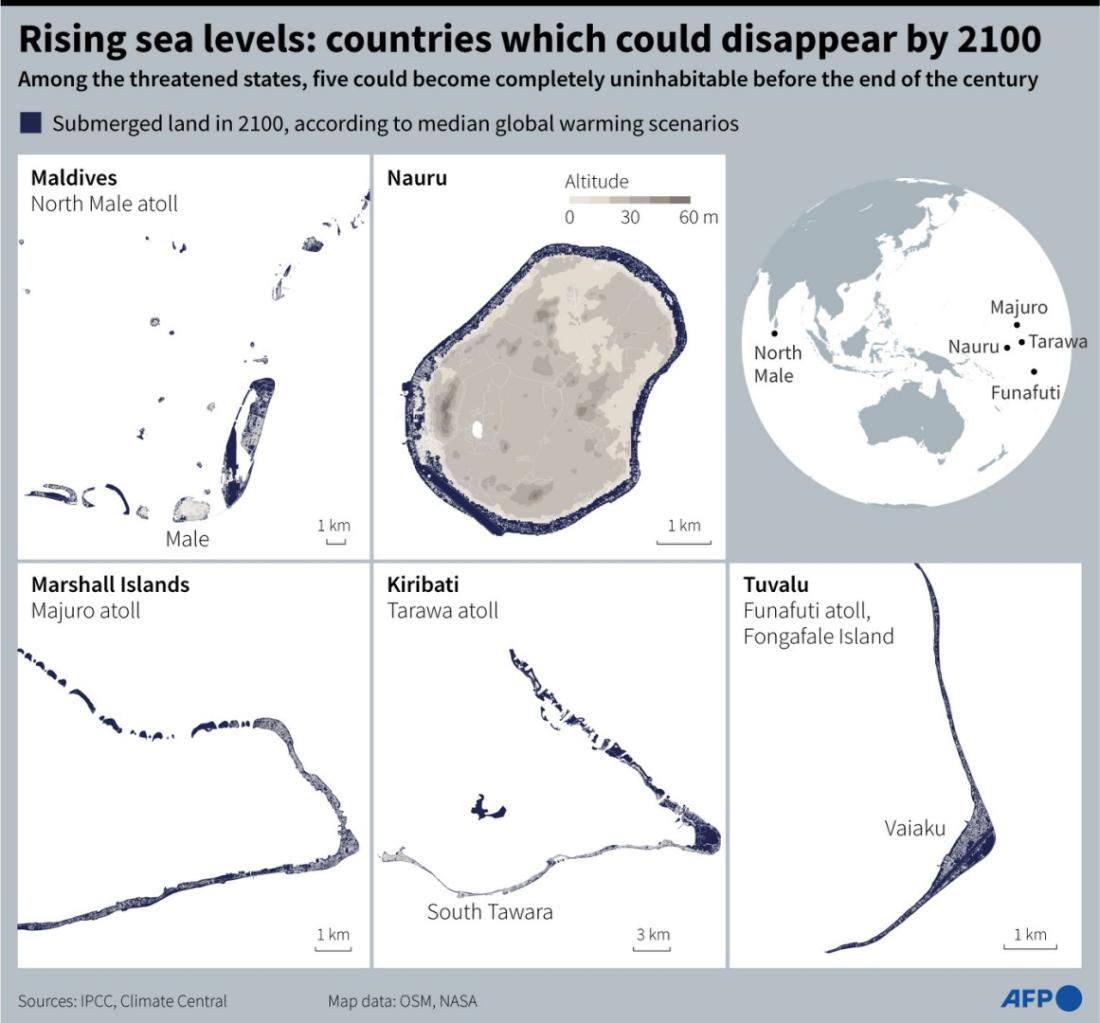
IPCC lead author Duvat demonstrated with co-authors in a 2019 study (archived here) that over the course of a decade, island change in the Maldives was rapid and "primarily controlled by anthropogenic drivers," or the influence of human activity on nature.
"The great majority of inhabited and exploited islands now exhibit an altered-to-annihilated capacity to respond to ocean-climate pressures," she said.
"This means that an anthropogenic tipping point has been reached on many islands that have lost the capacity to naturally adjust to rising sea levels through vertical accretion," a phenomenon in which sediments build up and naturally raise land (archived here).
AFP has debunked other claims about sea levels, here and here.
Copyright © AFP 2017-2026. Any commercial use of this content requires a subscription. Click here to find out more.
Is there content that you would like AFP to fact-check? Get in touch.
Contact us




